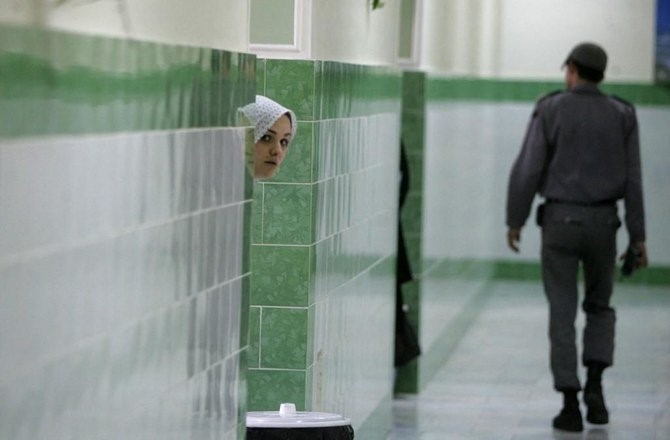PARIS – Iranian activists detained in a crackdown on rallies spurred by the killing of Mahsa Amini face torture or possibly death in detention, according to rights organisations.
Amini, 22, died in September, three days after being arrested by morality police in Tehran for allegedly breaching the Islamic republic’s strict clothing code, sparking months of demonstrations.
On Thursday, shocking photographs emerged of the arrest of freedom of expression campaigner Hossein Ronaghi, who was placed in a chokehold and taken away as he appeared at a prosecutors’ office.
He has been kept in Tehran’s Evin jail since his detention on September 24, and his family claims he is in danger of dying owing to a renal disease.
They also claim that his legs are fractured.
Ronaghi is one of several famous human rights activists, journalists, and attorneys who have been detained and supporters worry will never be released from the notorious institution where the majority of political detainees are held.
According to authorities, a fire at Evin on October 15 killed eight detainees.
It only heightened concerns about the wellbeing of the detainees, with activists accusing officials of employing tear gas and metal pellets inside the facility, despite the fact that no political prisoners were hurt.
“Forcibly disappeared detainees face high risks of torture and death.” “At this moment, immediate intervention by the international community is critical,” said Mahmood Amiry-Moghaddam, director of the Oslo-based NGO Iran Human Rights.
According to IHR, thousands of people were arrested around the country during the crackdown, including at least 36 journalists, 170 students, 14 attorneys, and over 580 civil society members, including workers and teaching union representatives.
The problem was exacerbated, according to Roya Boroumand, head of the Washington-based Abdorrahman Boroumand Center, by the sheer quantity of new convicts brought to facilities such as Evin and the Fashafouyeh Greater Tehran prison.
“We are deeply concerned about inmate conditions,” she told AFP.
Overcrowding implies that in locations such as prison gyms, there is “no choice but to sit or sleep in turn.”
Analysts believe the mass arrests are part of Ayatollah Ali Khamenei’s strategy to resist the statewide wave of protests, which pose one of the most significant challenges to Iran’s Islamic regime since the 1979 revolution.
Ronaghi, a Wall Street Journal contributor, has long been one of the country’s most outspoken critics of the Islamic republic.
Security personnel attempted to arrest him for the first time on September 22 when he was giving a live interview to Iran International TV, but he escaped, he stated at the time.
He emerged from hiding two days later, but was detained along with his lawyers.
Ronaghi “had a short chat with my mother but could only say a few words and could barely speak” after the fire that blasted through the jail, his brother Hassan Ronaghi stated on Twitter.
“Hossein’s life is in jeopardy,” Hassan said in his most recent tweet on Wednesday.
Following the Evin fire, Amnesty International called for impartial monitors to be let in to “prevent prisoners from further unlawful deaths, torture, and other ill-treatment.”
Majid Tavakoli, an activist who has been imprisoned several times in recent years in Iran, including during disputed elections in 2009, remains imprisoned following his detention on September 23.
His family claims they haven’t heard from him since the fire. “How can a person be free when his only tool is his brain?” Is it a crime to think?” his wife tweeted.
Arash Sadeghi was only recently freed from prison after spending several years. On October 12, he was imprisoned in Evin despite having chondrosarcoma, a rare type of bone cancer.
His father shared a photo of a dozen pharmaceutical boxes he requires.
“You can confine his body, but his soul is constantly among the people and unknown captives,” he wrote.
IHR voiced worry that numerous activists, including journalist and campaigner Golrokh Iraee and popular tech blogger Amir Emad Mirmirani, known as Jadi, were still being held incommunicado behind bars.
According to the rights group, several detainees were exposed to “self-incriminating televised confessions under coercion and torture,” as well as verbal abuse while in custody.
According to Boroumand, prisoners “have testified to being physically assaulted, tortured during interrogations, and deprived of food and clean drinking water.”
“Detainees are left with shotgun pellets and damaged limbs, and they are not receiving medical care.”
Source: AFP


